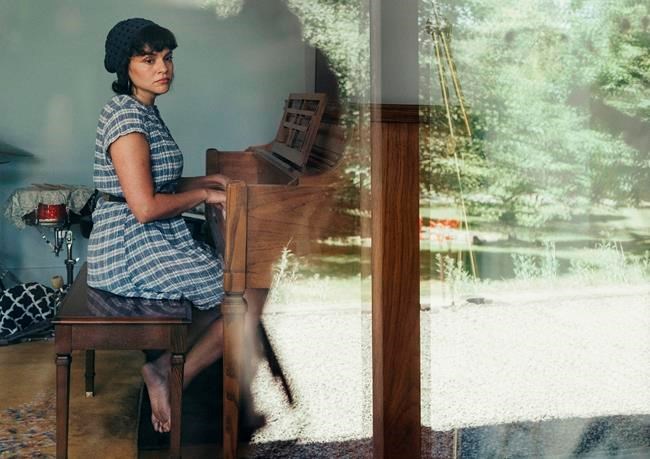NEW YORK — The title of Norah Jones’ new album, “Pick Me Up Off the Floor,” has two chief meanings.
After spending two years recording one-off monthly sessions, the piano-playing jazz-pop singer realized she had enough great songs piled up. “I didn’t know what was happening with them. I was sort of picking them up and putting them together. That was sort of the idea,” she said.
The other meaning? It’s the extremely literal one: the songs were sad, and Jones needed a hand getting up.
“That feeling of desperation, when you just need somebody to pick you up, it was all of that,” she said.
Jones’ seventh album will be released Friday and though the 11-track album was written and recorded sporadically, it is a cohesive set that is personal and emotional, with song titles like “How I Weep,” “Hurts to Be Alone,” “Heartbroken, Day After” and “Stumble On My Way” to drive the point home.
“Then it whacks me straight into my stomach at night, it’s a hard blow to take with all of its might/It tries to be sorry, it tries to be sweet, then it runs out the door as if on two feet,” she sings on the opening track.
But Jones, 41, isn’t down and out the entire time — the album’s later songs, including “I’m Alive” and “To Live,” finish off with hopeful notes proving there is light at the end of the tunnel.
“I feel like there’s a lot on this album that is very personal ... I think I was sad when I wrote a lot of them, for sure, obviously,” said Jones, who added that the subjects of the songs came from one period of time in her life, though she didn’t say when that was.
Getting the sad songs out of her system was healing, she explained.
“I think it’s a really good way to release it, actually. It’s more like an outlet for me to sort of release that sadness, I guess,” she said. “It feels really good to write songs when you’re feeling things deeply because you have somewhere to put all that energy. I think it’s almost like therapy.”
After she finished touring her 2016 album “Day Breaks,” Jones held monthly recording sessions to collaborate with artists and also to put out singles without thinking about a full-length album. She said she was extremely inspired to write, and the songs poured out of her.
“I’m not incredibly prolific usually. I’ll go through creative spurts, but I think just the act of doing these sessions every few months was like throwing another log on the fire,” she said. “I just thought it might open me up to new things, and it so did. Out of it came the album I wasn’t trying to make.”
She began to live with the songs — listening to them on her phone while walking the dog or in the house — and thought of ways to enhance the piano-based tunes, the majority of them written and produced solely by herself: “What do I want to add to it? Do I want to add horns? Does it need anything?”
Once she realized she had a full album she loved listening to, she worked on song sequencing to prevent it from sounding like a completely gloomy affair: “Let it get sad but not so sad that you don’t want to listen anymore.”
“It could be very different (depending on) the way the sequence goes," she said. “That’s the art of the album making, the arc of whatever story you’re trying to tell."
As for her next project, Jones isn’t sure how the songs will come together, but she’s still going to hold one-off sessions because it feels like freedom.
And though she’s stuck at home like the rest of the world, she’s still writing during the pandemic, when time allows it: “I’ve had a few moments of little lightning bolts where I write ideas down, but ... my kids are 4 and 6, so it’s been a lot of just that.”
The recent worldwide protests in the response to the killings of George Floyd, Ahmaud Arbery, Breonna Taylor and other black people have moved her to write, too.
“Sometimes things come through you (and) you try to capture them,” she said. “Last week has inspired a lot of thinking.”
Mesfin Fekadu, The Associated Press



